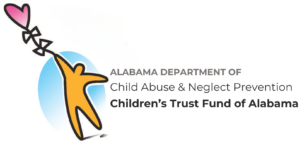Written by Melanie Childers.
In my work as a therapist, I’ve rarely seen anything with the potential to devastate family systems quite like addiction has. Addiction changes people fundamentally, and I don’t just mean the person who’s abusing substances; addiction alters the way the sober person experiences relationships, too. Parents, children, partners, and caretakers can become shells of people when addiction runs rampant in their world. So much time and energy is spent on worrying, on experiencing despair, on attempts to control others’ behaviors. And energy is never fully replenished without help from resources. Even then, if addiction isn’t addressed and boundaries aren’t set, those resources are only helpful to a degree.
 Because of this widespread devastation, many families ask “Why? But why?” Why would a person use drugs when it’s harmful to them as well as their loved ones? Why would a person do such hurtful things to themselves and others, all for the sake of getting their next fix? I wish I had answers for this. We know of many factors that make a person more likely to develop an addiction: genetics, trauma, socioeconomic status, mental health, interpersonal relationships, education. But it seems that, despite the insight we gain into these factors that make some more predisposed to addiction than others, the question remains: why do hurt people hurt people?
Because of this widespread devastation, many families ask “Why? But why?” Why would a person use drugs when it’s harmful to them as well as their loved ones? Why would a person do such hurtful things to themselves and others, all for the sake of getting their next fix? I wish I had answers for this. We know of many factors that make a person more likely to develop an addiction: genetics, trauma, socioeconomic status, mental health, interpersonal relationships, education. But it seems that, despite the insight we gain into these factors that make some more predisposed to addiction than others, the question remains: why do hurt people hurt people?
Perhaps a more practical question in the realm of repairing trust is: How do we come back from this? In the recovery community, there’s much talk about things that are broken. Family units, the broken brain, physical bodies. Hearts are broken. Trust is broken. These breaks need rehabilitation, too. Broken bones heal and the brain rebuilds itself, but the most delicate repair process lies within relationships. Repairing and rebuilding trust is a painstaking process. It takes time and energy and hope, which are the very things addiction has stolen from so many of us.
Defining Trust
When you hear the word “trust,” what comes to mind? It is defined by Oxford Languages as “firm belief in the reliability, truth, ability, or strength of someone or something” and likely your answer matches some or all of these components. What about trust as a verb, an action? What does that look like? This is the more pertinent line of questions I’ll be writing on in this series.
In his book Daring to Trust, author David Richo teaches us that we all develop trust in different ways. He discusses the four directions towards which we develop trust, and you may notice having more challenges in certain directions compared to others. We develop trust towards ourselves, towards others, towards the experience of life, and towards spiritual principles (e.g. a Higher Power). In my work with couples and families, I see that there isn’t just a matter of trust broken among family members or between spouses; often there’s trust broken within themselves.
 If you’ve ever been betrayed by someone, disappointed by someone, lied to, or generally deceived in some way, you may find yourself wondering “Why did I let that happen?” Or “I should have known better.” These faulty belief systems begin to make us question our own trustworthiness to be able to manage difficult situations in life. In the same way, a person with an addiction may find it nearly impossible to trust themself to stay sober. This alone leads to many problems that need addressing, but the stakes are even higher when loved ones of the addict struggle to trust them, too.
If you’ve ever been betrayed by someone, disappointed by someone, lied to, or generally deceived in some way, you may find yourself wondering “Why did I let that happen?” Or “I should have known better.” These faulty belief systems begin to make us question our own trustworthiness to be able to manage difficult situations in life. In the same way, a person with an addiction may find it nearly impossible to trust themself to stay sober. This alone leads to many problems that need addressing, but the stakes are even higher when loved ones of the addict struggle to trust them, too.
Richo goes on to explain that the origins of the concept of trust were largely constructed out of what we, as humans, do not feel satisfied with: mistrust. We may not easily articulate what it feels like to trust someone new in our lives, but we certainly know what it feels like once it’s lost. Richo writes “A fish would not have a word for water until it was washed up on the shore.” This is a profound explanation for the grief we enter once trust has been broken. We immediately have a felt sense that trust must be rebuilt, otherwise we’re hopeless…right?
Tools for Rebuilding Trust
The installation of hope is one of the most important parts of the therapeutic process. When I see couples and families in therapy, often they struggle to perceive hope in their situation; and if they do, it only appears as a dimly-lit candle about to burn out within themselves. I make it a point to let them know that despite what it may seem, they have more hope than they realize, and this is apparent in their willingness to seek therapy. When I led intensive outpatient groups in residential addiction treatment centers, those patients experienced that same, nearly-imperceptible glimmer of hope that their worlds could be changed for the better through sobriety. Most had in common one factor that contributed to their sense of wariness that things could improve: family dysfunction. Their loved ones didn’t trust that they’d stay sober, so how could they trust themselves?
The process of rebuilding trust begins as soon as trust is broken. Whether we realize it or not, each decision we make to stay, to communicate through difficult feelings, or to work through conflicts is an act of rebuilding trust. One of the pitfalls I see people fall into during this process occurs when they feel entitled to trustworthiness. People in early sobriety are often frustrated—understandably so—that their loved ones look at them warily or walk on eggshells around them. While their frustration is natural, especially if the person in recovery is truly engaging in transparency and honesty in their behaviors and intentions, it must be placed to the side in favor of patience. After all, their loved ones cannot know that what they’re observing is genuine, at least not before some time has passed.
Trust has to be provisional because of the nature of human behavior. Addiction’s grip leads people to make mistakes and poor decisions, and to be driven by self-preservation. So lying and other deceptive behaviors become more and more justified by the addict, all in an effort to maintain the addiction. Before a spouse lies to their partner, trust is given implicitly, assuming past experiences haven’t diminished their partner’s capacity for trusting others (more on that in the next post, which will center on our first exposures to trust in the family system). Once deceit has been uncovered, however, the provisional nature of trust means it must be altered according to the partner’s need for self-protection. So the lying spouse who preserves themself through dishonesty during active addiction must understand that their partner needs time and proof over that time that trust can be safely reestablished.
How freely-given trust is depends on the moment at hand; in the early stages of rebuilding trust, which often coincide with the early stages of recovery, it’s unreasonable to expect trust to be quickly dispersed. Along with Richo’s teachings, the impatient person in recovery must “stop demanding that our partner trust us but rather let the record of our new behavior show her the difference in us.” In the spirit of this insight, “patience has replaced demand” and this is what the focal point of rebuilding trust ought to be. The road to rebuilding trust will be long and filled with obstacles, so developing patience is key.









